
Takin' My Time is the third studio album by American musician Bonnie Raitt. It was released in 1973 by Warner Bros. Records. The album is an amalgamation of several different genres, including blues, folk, jazz, New Orleans rhythm and blues, and calypso. The 10 tracks on the album are covers, ranging from soft sentimental ballads to upbeat, rhythmic-heavy tracks. Lowell George was originally hired to handle the production, but was ultimately replaced by John Hall when Raitt became unhappy with his production.
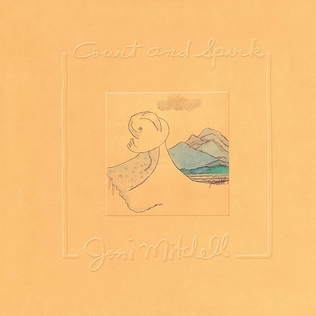
Court and Spark is the sixth studio album by Canadian singer-songwriter Joni Mitchell. Released in January 1974, it infuses the folk rock style of her previous albums with jazz elements.

Jericho is the eighth studio album by Canadian-American rock group the Band. Coming seventeen years after their "farewell concert", it was released in 1993 and was the first album to feature the latter-day configuration of the group, as well as their first release for the Rhino subsidiary Pyramid Records.

Playback is a box set compilation by Tom Petty and the Heartbreakers, released in 1995. It contains popular album tracks, B-sides, previously unreleased outtakes, and early songs by Petty's previous band Mudcrutch.
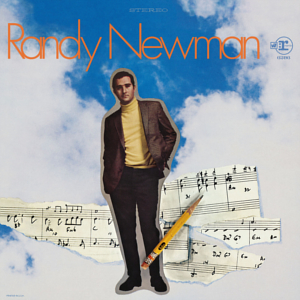
Randy Newman is the debut studio album by American singer-songwriter Randy Newman, released in 1968 by Reprise Records. The album is sometimes referred to as Randy Newman Creates Something New Under the Sun, written on the reverse of the album sleeve. Newman had been a noted songwriter for some years prior to the release of his debut, which was advertised as sounding "like a greatest hits". In contrast to his later albums which usually feature Newman and his piano with a rock backing, Randy Newman is highly orchestral.
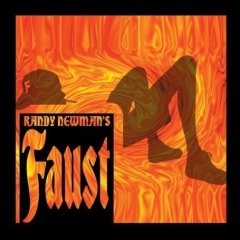
Randy Newman's Faust is the ninth studio album and a 1995 musical by American musician and songwriter Randy Newman, who based the work on the classic story of Faust, borrowing elements from the version by Goethe, as well as Milton's Paradise Lost, but updating the story to the modern day, and infusing it with humorous cynicism.

Little Criminals is the fifth studio album by American singer-songwriter Randy Newman. Like most of Newman's work, the album eschews traditional pop-music themes in favor of musical story-telling, often featuring quirky characters and cynical views. The first song on the album – "Short People" – became a hit single in its own right. The album itself peaked at #9 on the US Billboard 200 chart, Newman's highest-charting album to date.

Poetic Champions Compose is the seventeenth studio album by Northern Irish singer-songwriter Van Morrison, released in 1987 on Mercury Records. It received generally positive reviews from critics, most of whom viewed it as adequate mood music.

New Sensations is the thirteenth solo studio album by American rock musician Lou Reed, released in April 1984 by RCA Records. John Jansen and Reed produced the album. New Sensations peaked at No. 56 on the U.S. Billboard 200 and at No. 92 on the UK Albums Chart. This marked the first time that Reed charted within the US Top 100 since his eighth solo studio album Street Hassle (1978), and the first time that Reed had charted in the UK altogether since his sixth solo studio album Coney Island Baby (1976). Three singles were released from the album: "I Love You, Suzanne", "My Red Joystick" and "High in the City", with "I Love You, Suzanne" being the only single to chart, peaking at No. 78 on the UK Singles Chart. The music video for "I Love You, Suzanne" did, however, receive light rotation on MTV.

Hymns to the Silence is the twenty-first studio album by Northern Irish singer-songwriter Van Morrison. It was his first studio double album. Morrison recorded the album in 1990 in Beckington at Wool Hall Studios and in London at Townhouse and Westside Studios.

Boys and Girls is the sixth solo studio album by English singer and songwriter Bryan Ferry, released on 3 June 1985 by E.G. Records. The album was Ferry's first solo album in seven years and the first since he had disbanded his band Roxy Music in 1983. The album was Ferry's first and only number one solo album in the UK. It was certified Platinum by the British Phonographic Industry (BPI) and contains two UK top 40 hit singles. It is also Ferry's most successful solo album in the US, having been certified Gold for sales in excess of half a million copies there.

Heat Treatment is the second album by English singer-songwriter Graham Parker and his band The Rumour, released in 1976. A close follow-up to Parker's debut album Howlin' Wind, Heat Treatment was well received by critics and contains signature Parker songs like the rollicking title track, "Pourin' It All Out", and "Fool's Gold". "That's What They All Say" is a Dylan-esque putdown from a realist perspective, while "Turned Up Too Late" was perhaps Parker's most emotionally mature composition to date. "Black Honey" is a dark, downcast sequel to the debut's upbeat first track "White Honey". "Hotel Chambermaid" was covered many years later by Rod Stewart. The Rumour was credited on the back cover and the label, but not on the album's front cover.
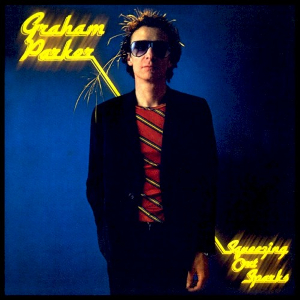
Squeezing Out Sparks is the fourth studio album by English singer-songwriter Graham Parker and his band the Rumour. The album was released in March 1979. Although the Rumour were not credited on the cover, their name was included on the album label.

Bad Love is the tenth studio album by American singer-songwriter Randy Newman, released on June 1, 1999. It was Newman's first solo album since 1995's Randy Newman's Faust and followed a 3-year hiatus during which Newman had focused on film soundtracks, receiving several Academy Award nominations.

No Frills is the sixth studio album by American singer Bette Midler, released on Atlantic Records in 1983. No Frills was Midler's first studio album in four years, following the movies The Rose, Divine Madness! and Jinxed!. The rock and new wave influenced album was produced by Chuck Plotkin, best known for his work with Bob Dylan and Bruce Springsteen, and included three single releases; the ballad "All I Need to Know", a cover of Marshall Crenshaw's "You're My Favorite Waste of Time" and Midler's take on the Rolling Stones song "Beast of Burden".
Tom Howard was an American pianist, musical arranger and orchestral conductor.

"One of These Nights" is a song written by Don Henley and Glenn Frey and recorded by the American rock band Eagles. The title track from their 1975 One of These Nights album, the song became their second single to top the Billboard Hot 100 chart after "Best of My Love" and also helped propel the album to number one. The single version was shortened from the album version of the song, removing most of the song's intro and most of its fade-out, as well. Henley is lead vocalist on the verses, while Randy Meisner sings high harmony on the refrain. The song features a guitar solo by Don Felder that is "composed of blues-based licks and sustained string bends using an unusually meaty distortion tone."
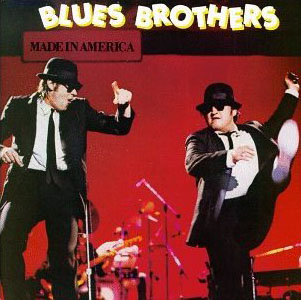
Made in America is the third album by The Blues Brothers. The second live album by the band, it was released in December 1980 as a followup to their hit film released that year, The Blues Brothers. To support the film, the band embarked on a 22 dates tour in North America, culminating with seven dates at the Universal Amphitheater in Los Angeles. Keyboardist and musical director Paul Shaffer, sax player Tom Scott and drummer Steve Jordan, who were absent in the film and the soundtrack due to scheduling conflicts, reprised their roles as full-fledged band members. Drummer Willie Hall was let go but the band decided to retain Murphy Dunne, who had replaced Shaffer in the film, as additional keyboards player. Session man Jeff Mironov was brought in to provide additional guitar for the record.
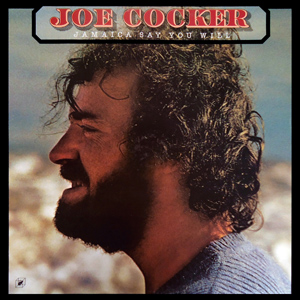
Jamaica Say You Will is the fifth studio album by Joe Cocker, released in April 1975. The songs from the album come from the same sessions that produced the highly acclaimed LP I Can Stand A Little Rain (1974). Jamaica Say You Will wasn't, however, as successful as its predecessor. It reached number 42 on the US album charts.
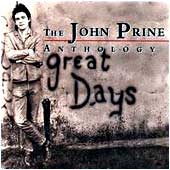
Great Days: The John Prine Anthology is a compilation album by American folk singer John Prine, released in 1993.



















